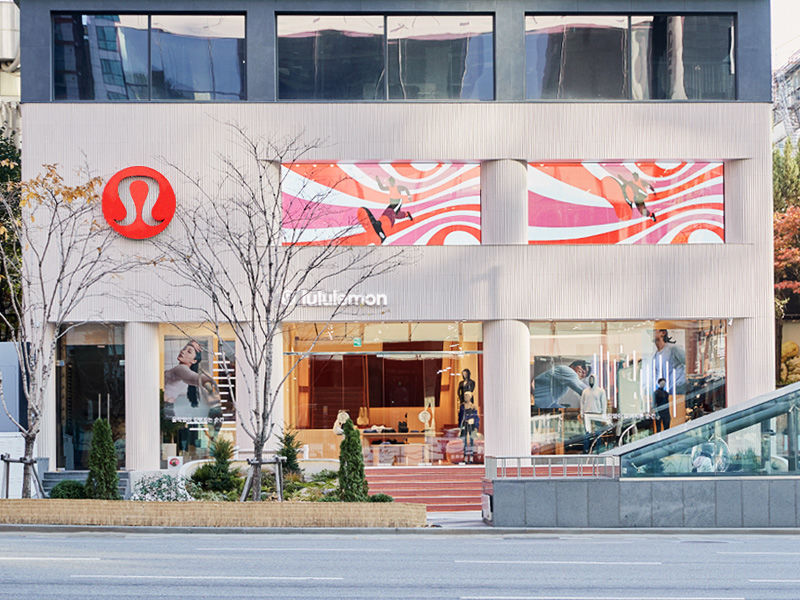lululemon athletica (LULU 1.53%) ended fiscal 2019 with strong momentum. Holiday-quarter sales were up 20%, reaching $4.0 billion for the full year.
But things went downhill in a hurry during February when Lululemon was forced to temporarily close stores in China. All except one have since reopened. In March, the company closed its stores in North America and Europe as well as its distribution center in Sumner, Washington.
The short term looks bleak. In its recently filed annual report, the company states, "We expect our sales growth trends to experience a meaningful deterioration from those achieved in fiscal 2019 and to experience a material adverse impact on our fiscal 2020 results."
However, management remains confident in the long-term opportunities. During the recent earnings call, management highlighted several reasons why Lululemon is positioned to survive this pandemic and continue growing in the long run.

Image source: Getty Images.
1. More than $1 billion of cash
The most important measurement of a retailer's ability to withstand a recession is the level of cash and debt on the balance sheet. On that score, Lululemon is in great shape. As of Feb. 2, it held $1.1 billion in cash and no debt.
2. Growing e-commerce channel
That level of cash will prove very valuable as Lululemon shifts resources to support growth in the e-commerce channel. Lululemon's key e-commerce distribution centers continue to function, as CEO Calvin McDonald explained during the call. He said, "Over the last several years, we have made significant investments in our supply chain and distribution network," and added, "I'm confident that we'll be able to further leverage these investments to help us navigate through the current situation."
Lululemon has a slick direct-to-consumer shopping experience, including ship-from-store options, in addition to its app and website. During the holiday quarter, Lululemon's digital revenue surged 41% year over year and made up over a quarter of the top line in fiscal 2019.
Digital won't be able to fully offset the loss of sales at stores. But some sales are starting to shift online that otherwise would have gone to stores. McDonald said, "Since closing, our digital business has picked up, but it's obviously not recovering all the volume loss from our store networks being closed, but we have seen our online business accelerate in terms of growth, but obviously it cannot pick up the entire demand."
3. Engagement with online sweat classes
With stores closed in China, Lululemon's largest peer, Nike, was able to stimulate growth in its digital business by getting people connected with its online training classes. Strong engagement with fitness classes translated to growth in Nike's commerce apps.
Lululemon has the same opportunity. McDonald said, "Similar to what we've done for our own people, we have been offering online sweat sessions for our guests with yoga, meditation, Pilates, dance, and train classes." As a result, Lululemon gained thousands of new followers on Tencent's WeChat, a popular social media app in China. Also, Lululemon saw nearly 170,000 guests on Facebook's Instagram for live classes.
McDonald said it's too early to gauge the impact online sweat classes will have on new guest acquisition in North America, but he said, "I would anticipate that we would equally see some new guests acquired this way."
4. Non-seasonal merchandise
Another strength for Lululemon is that some of its best-selling styles are not tied to seasonal trends or fast fashion. For example, black yoga pants don't go out of style. Certain core products like this can be sold throughout the year.
"There is a high percentage of our business that is core, which means we were able to hold and continue to sell for a much longer period of time, or less dependent on the need to flush out inventory," McDonald said.
Most importantly, this will allow Lululemon to avoid steep discounts to get rid of unsold merchandise. Earnings are still going to take a hit in the short term, but this should help the company recover much faster when the economy stabilizes.
5. Athletic apparel is in a relatively strong position
The athletic apparel market has been a consistent performer in the broader retail industry in recent years. While fashion trends come and go, demand for athletic wear will be there in the long term.
As McDonald explained, "At our core, we solved sweaty problems for athletes, and we do not believe the current situation will change the trend toward people wanting to live an active and healthy lifestyle."
Lululemon has what it takes
These are some of the key advantages Lululemon can work with as it navigates the COVID-19 pandemic. The stock is well off its highs, but the company has the financial strength and the digital connection with customers to stay afloat until consumer confidence comes back.
Fellow Fool Anand Chokkavelu picked Lululemon as one of his top 20 stocks to buy for 2020. I recently added shares to my position and believe it's one of the best retail stocks to buy during this bear market.









